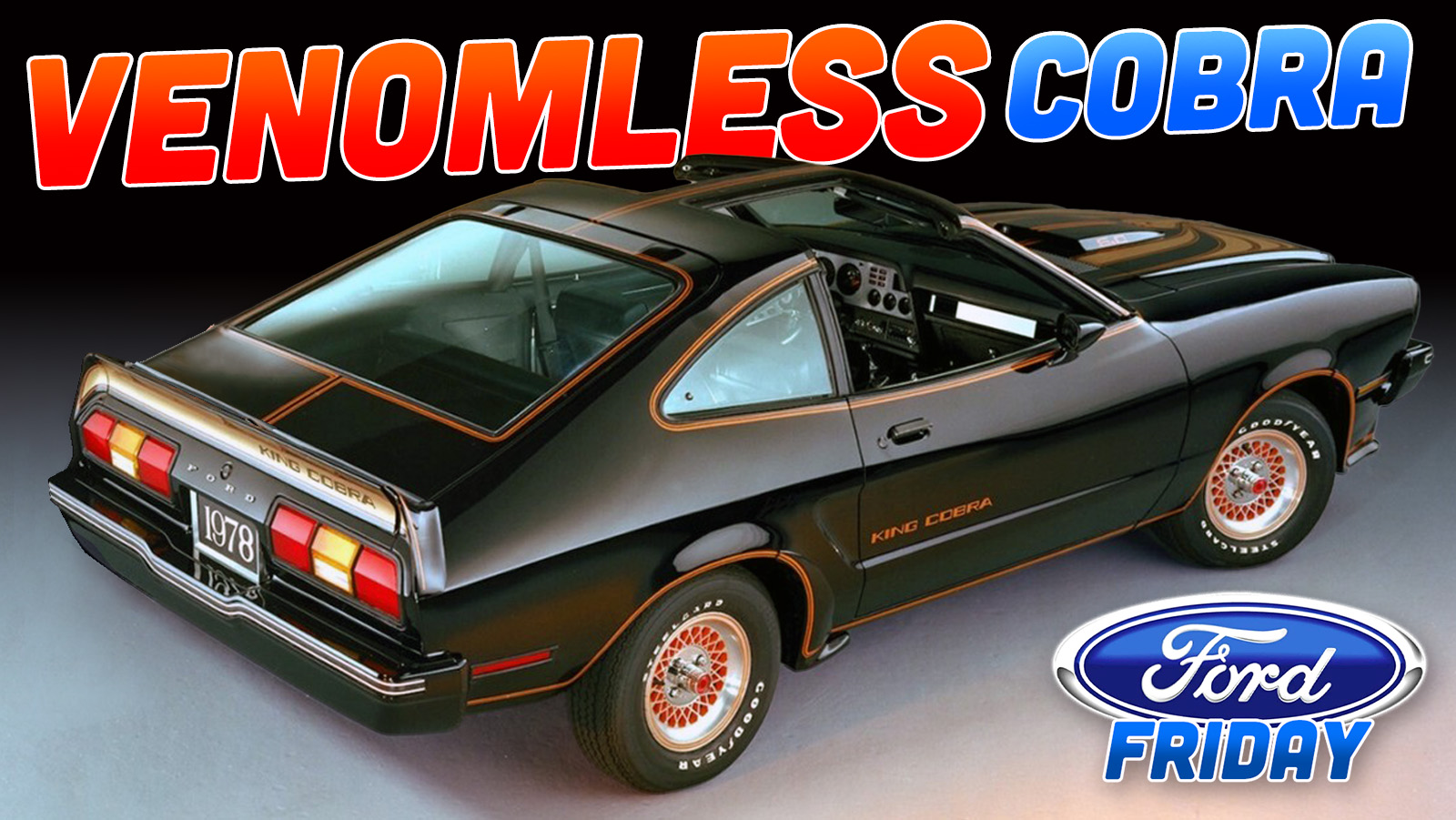For decades, American automakers have found a classy way to spruce up their cars. All sorts of models from various brands were adorned with simulated woodgrain, a nod to when cars featured wooden bodies. Forest River is now doing something similar with the Cedar Creek Cottage 41FWC. This $120,000 fifth wheel wants you to think it’s a wood cottage on wheels, but just like your old Chrysler LeBaron the woodgrain isn’t real. This is a fad I can totally get behind.
One of the biggest complaints I see about RVs, aside from the absolutely piss poor quality of many of them, is that RV manufacturers put the most boring designs on these things. Most RVs have sleep-inducing swoops, geometric shapes, and monochromatic colors. It’s bad enough that I recently praised a large trailer manufacturer for daring to break from the mold by giving its newest trailer automotive exterior paint. You, me, and basically everyone else who has to look at RVs have been begging for something different.
Well, something different has arrived and it’s called the Forest River Cedar Creek Cottage 41FWC. This chunky destination fifth wheel is hitting the market with a design that finally does away with the swoops, but is the new design any better?

I’ve explained this before, so I’ll keep it short. There are different types of towable RVs out there. On one end is the travel trailer, which is supposed to be a highly portable hotel room on wheels. On the other end is the park model, which is designed to be towed to a single place, where it’ll stay for the rest of its service life. Park models aren’t really meant to be hauled around and some of them are so big that permits are required to move them. Likewise, park models don’t have holding tanks like travel trailers do.
The destination trailer closes the gap between both types of trailer. Destination trailers usually feature residential appliances and large, open layouts like park models, but they’re also built to RV code so they’re fully highway-legal. Destination trailers also have holding tanks so they can be used as a travel trailer if you choose. However, destination trailers aren’t ideal travel trailers as they tend to be sizable, heavy, and not even a little aerodynamic.

The Cedar Creek Cottage 41FWC is a large trailer, but that’s because it’s a destination trailer, not just a standard travel trailer.
We haven’t talked about Forest River a lot here, but it’s a large player in the RV industry. If you threw a dart at a plywood wall of RV brands you would almost certainly land on a manufacturer owned by Thor Industries or Forest River. They both do different flavors of the same thing. Forest River even has a story similar to Thor’s. It was founded in 1996 by Pete Liegl after he purchased some of the assets of Cobra Industries. Like Thor, Forest River grew by putting a bunch of brands under its umbrella.
Cedar Creek was launched in 1999 by Forest River and it exists for “enhancing the joy of the outdoors and your peace of mind, by building better quality recreational vehicles designed to withstand rugged road conditions and extreme temperatures. When the destination, not the journey is your dream, consider an RV designed with you in mind.”
That’s some of the most generic marketing copy I’ve ever read. Forest River could truncate it to “we build RVs” and it would have the same impact.
Big Woodie

Anyway, Cedar Creek Cottage is known for its destination trailers, and for 2025 it announced the 41FWC.
The big news with this trailer is its exterior. Forest River says the trailer is built without caulking. Instead, the corners and joints of the unit, which are often a source of water leaks in typical builds, are now aluminum C-channels riveted to the trailer’s structure. The trailer also has a composite floor that promises a rot-free future even if water does get in. While none of this is revolutionary, it is a welcome step in the correct direction.

The headlining change with this trailer is its exterior walls. Forest River says the trailer uses fiberglass for siding like most campers do. However, Forest River says it used digital UV paint to apply the design you see onto the fiberglass. These trailers come with a faux wood and metal design, but this isn’t just a giant decal. It’s actually a part of the fiberglass.
This simulated wood is supposed to look like the real deal, not unlike the woodie wagons of the 1950s and later. Now, fake wood isn’t new either and RVs have been doing that for decades, too. But this is definitely the first time I’ve seen fake wood embraced to this level. It’s like an RV designer went to a car show, saw a woodie wagon, and wondered what if a 43-foot trailer could also be a woodie.


Like a Chrysler PT Cruiser with a woodie kit, this camper isn’t even trying to convince you it’s real wood. It’s so silly that I find myself liking it. At least it’s not just a bunch of swoops, right?
Once you stop staring at the woodie, you’ll head inside to witness an open layout. Nothing’s particularly out of the norm in here, but I do like how it appears Forest River is using thicker plywood for drawers and the parts are dovetailed together. Again, this isn’t groundbreaking stuff, but it’s just one step above the typical build.



Like other destination trailers, the Cedar Creek Cottage 41FWC features residential appliances, residential-style furnishings, and there’s even a loft for your smaller campers to sleep in. Also, nobody tell the folks of Storyteller Overland that the bathroom in this destination trailer is larger than their so-called largest bathroom ever in the GXV Epic.
Other good news comes from the spec sheet, where Forest River says the cabinetry itself is handcrafted and made out of real wood. Hardwood finishes are also found throughout the trailer. The trailer provides sleeping space for eight people with a primary bedroom, living room, dining room, and loft. There’s also onboard laundry machines.
This trailer is simply huge, even when you look at just the stats. It weighs 14,314 pounds empty and 20,820 pounds when loaded. The fresh tank is 75 gallons while you get 41 gallons for waste and 123 gallons for showers and the sink. The whole trailer stretches 42’6″ feet and you get two slides on the left side of the trailer.
Forest River says you get all of this for $118,801. I won’t say this is cheap, but we’ve seen companies offer a let less for a lot more.
I’m also not sure if Forest River has gone far enough to ensure a long-lasting trailer. I like the lack of caulking as weather seals and I like the composites, but what would have been even cooler would have been a one-piece roof without equipment to add potential entry points for water. But a former dealer writing for RV Travel claims that Cedar Creek products have “typically been very good.” So, at least that’s a good sign.
Still, I find myself coming back to the woodgrain. Do I think it looks pretty? Absolutely not. But it is something different and something that, for once, isn’t just a white box with swoops. So, maybe this is a polarizing style, but I hope RV manufacturers continue down this path of trying different things. The next question is what do you tow this bad boy with and does it also need its own fake woodgrain?
(Images: Manufacturers)










Forest River is actually doing good on these destination builds. My wife and I are currently going 3 months in an RVS1 and no issues with any amenities or the structure its self. It may be because it was new then delivered to our plot of land about 10 miles away from the dealer, so no real road wear. The plan is to build a house on our plot and set this up as a guest house , its set up perfectly for two and is modern enough inside to not feel like living in a camper from the 90s. I have been surprised by the quality of the RVS1 especially after reading your other articles! But luckily I knew what to look for because of them!
Digital UV paint = printed on a flatbed inkjet printer.
I don’t believe the exterior is inspired by woodie wagons at all.
Look at the pages of Dwell or Domino instead – where you’ll find Shou Sugi Ban siding, CorTen steel, and black windows & trim.
That interior is more studio/loft apartment from those pages than any RV too.
As others have said here — this isn’t an RV that’s meant to be towed around for long weekends by the family F150 XLT.
This is a guest house/vacation cottage/tiny-home/movie-set leading-role dressing room that happens to have wheels – and is better towed (rarely) by a rented pro in a Mack.
I can see a great use case for this for situations like a temporary home while you’re main home is being renovated or repaired. Or a quick way to get a home for an empty lot. Or if you have a large lot and need some extra living space for extra family, this could be a good solution.
And $118K is a lot for an RV. But for something that is meant to used mostly as a stationary home built to regular house standards? The price doesn’t seem to be crazy.
If you absolutely have to camp, this is how it’s done. If you invite me to the woods, this is now the floor of what I expect. And you better figure out the wifi sitch.
It looks like dozens of fashionable trailer-based tiny homes, but built out of RV parts.
The cynic in me thinks Forest River’s marketing department said “Make it look like these pictures and add a 20% markup to the price.”
The optimist in me thinks maybe Forest River hired some engineers who looked at popular trailer-based tiny home plans and figured out how to save some weight using RV construction techniques, improve a few things, and try to build a real alternative.
The truth is probably somewhere in between.
Ironically the Tiny Home Industry has a large elephant in the room.
This is a mobile home.
Interior is great. It definitely feels like a tiny house as others said, not a camper. I could comfortably live in this thing assuming that the build quality is good.
But the exterior… ew. I know the look they are going for, as ~25% of the homes build in the last 2 years in our neigborhood look like this. Black windows, black siding, black garage door, light wood or light stone accents for contrast. It’s just… “played out”, as those of my age would have said in their youth. I’d much prefer if it was just plain old boring black TBH.
Looks great. Tiny home vibe. Quality is a big question based on your reporting. I’ll stick with airbnb for now.
Kinda looks like one of those tiny house setups. I like it, but it going to need a good size tow rig.
I dunno, Mercedes, from the pictures I kinda like it! I’m not a big RV person, but man do they all look the same. This one is different AND cool! Plus it looks like you’re in a cabin in the woods, not a coffee vending machine in the woods. It might look a little weird parked at a desert campsite, but oh well.
But is it chock full of staples that are too short to hit anything or screws that pierce lauan and thread into dead air behind?
And how!
If it comes with a chewed up pencil in the kitchen junk drawer, maybe.
Otherwise I’m out.